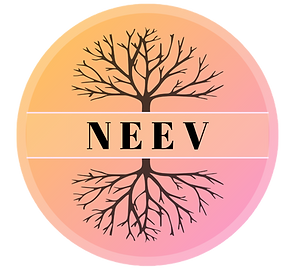Menstruation and Autism
- shireen rumani
- Aug 17, 2021
- 4 min read
Updated: Aug 19, 2021
The first menstrual cycle is unique for each person and is a distinct memory. Many people reacted to their first time bleeding in different ways. Some people have passed out due to the shock, some have cried while some felt anxious and so on. Irrespective of those once in a year class that taught us how to use a pad when menstruation begins, no amount of theoretical knowledge felt enough to help deal with our first time.
We have felt anxious, confused, and a plethora of other emotions. The sudden backaches, intense mood swings, weird yet painful cramps in the abdomen, nausea, and other discomforts along with the amount of blood gushing out for a certain period of days made it all feel like a curse more than a blessing.
From having to deal with learning how to stick a pad properly to realizing there is a different pad designated for each type of flow and then having to struggle with the discomfort of wearing one or dealing with rashes or the sudden embarrassment of having leaks, nothing felt easy. It took a while to get used to it but after the first period, we found ourselves not having one for a certain while, sometimes months maybe. Nothing about the situation put us at ease, rather, it made us swindle further in confusion.
Secondary sexual characteristics like the development of pubic hair, changes in voice, enlargement of breasts, growth of beard and mustache, etc start developing as a sign of a child transitioning into the stages of adolescence which lead to various changes in the human body. Most of us are unaware of how to deal with them and often try to seek guidance or information from other sources. Menstruation is one of the major physiological changes an adolescent experiences.
However, since most of us are able-bodied and can fundamentally perform our daily tasks, there is still a large portion of the population that struggles a lot harder than us in this regard due to being physically or mentally challenged or both. It is very little to no provisions for people who genuinely need a lot more assistance and guidance to be able to deal with menstruation.
Autism spectrum disorder (ASD) is a complex developmental condition that involves persistent challenges in social interaction, speech and nonverbal communication, and restricted/repetitive behaviors. The effects of ASD and the severity of symptoms are different in each person. Often we fail to notice that Autism is a broad spectrum and every individual has unique needs and the intensity of their condition varies as well.
Generally, children who are autistic do require assistance; however, the degree of assistance differs based on their general functioning ability. While most of us can identify and process our emotions and differentiate between mood swings due to PMS or other causes; it is difficult for those who have autism to do the same.
They already struggle to process their emotions in general and having to deal with mood swings as well might just get quite overwhelming for them which makes them agitated. Their lack of social interaction only makes it more difficult for them to communicate their needs, feelings, or even discomfort. For the ones who need extreme assistance for each task and who don't even recognize the need to eat or relieve themselves, it would be a lot more difficult to deal with menstruation along with the other symptoms that come with it.
Caregivers of an autistic child also face challenges. While they do everything they can to take care of their child, it hurts them to watch their child struggle which causes emotional and mental turmoil within them. The physical changes, change in hormone levels, symptoms that occur before or after menstruation, and huge emotional outbursts are a lot more challenging to deal with. Gynecologists and other skilled professionals in the medical field are now considered as an important resource for the child as well as mental health professionals that would help both the parent(s) and the child to deal with the occurring changes.
There hasn't been much research done as of now regarding this matter. However, there is slow progress made towards this direction with the help of guides that have been created for parent(s), counseling, special institutions that cater to the needs of autistic individuals, etc.
There are a variety of period products in the market starting from pads to period underwear and multiple other sustainable options as well. Caregivers can purchase these items from the market and give them a demonstration about their usage. For individuals who require visual support, a visual schedule can be created. Using charts or guides that have emoticons would help them describe their current feelings. Online period apps could help them keep a track of their periods. Using social stories as an approach to help them feel prepared about their periods is another great initiative.
Autism is a part of their identity as an individual. However, this does not take away from their freedom to have a variety of choices. Their right to access a good quality standard of living in all aspects persists. As we continue to gain more awareness about individual uniqueness and the different struggles that come with it, more thought could be given to our ability to understand each person's sense of self, including autism.
References:
https://www.psychiatry.org/patients-families/autism/what-is-autism-spectrum-disorder#:~:text=Autism%20spectrum%20disorder%20(ASD)%20is,are%20different%20in%20each%20person
_edited.png)



Comments